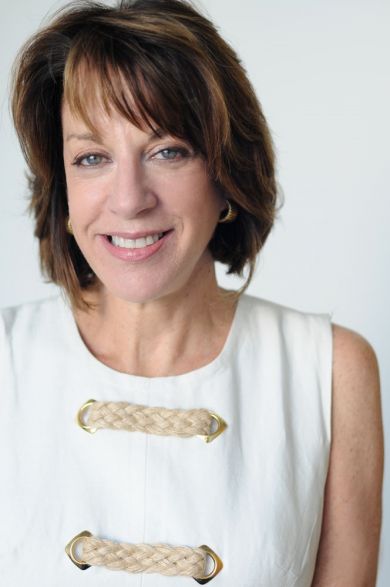Greater collaboration may improve outcomes in pancreatic cancer
Highly effective immunotherapies and targeted treatments have dramatically improved outcomes for patients with many types of solid tumors.
Death rates for pancreatic cancer, however, have not improved considerably over the past 4 decades. This year, the malignancy surpassed breast cancer to become the third-leading cause of cancer-related mortality. By 2030, it is expected to overtake colorectal cancer to become the second-leading cause, behind only lung cancer.
Still, specialists point to some reasons for optimism. They include the development of more effective chemotherapy regimens and safer surgical interventions, as well as advances in genetic sequencing that eventually could unlock the promise of precision medicine.
In addition, the launch of a large-scale national trial designed to transform outcomes for patients with pancreatic cancer may help alter the mindset in the clinical community that the malignancy equates to a near-certain death sentence.
“When physicians deliver the message of a pancreatic cancer diagnosis to patients, they often go into conversations with a resigned attitude,” Allyson J. Ocean, MD, medical oncologist and attending physician in gastrointestinal oncology at NewYork-Presbyterian Hospital/Weill Cornell Medicine, told HemOnc Today. “Although I agree this is a very serious cancer and the treatments are toxic, if we do not take it one step further and try to uncover mutations, better understand the biology of the disease or enroll our patients into clinical trials so they can get better therapies, then we are doing them a disservice.”
....
Ocean joined forces with a patient with pancreatic cancer to launch an online initiative called Let’s Win.
The Pancreatic Cancer Action Network — which estimates that more than 95% of patients with pancreatic cancer do not participate in clinical trials — partnered with Let’s Win to establish an online tool to match patients with the most appropriate clinical trials. The tool is available at letswinpc.org.
“Our goal is to empower patients with this new online platform so they can talk with their health care providers about things they may not otherwise have known about,” Ocean said.
Collaborative efforts like Precision Promise and Let’s Win are essential to move the field forward, she added.
“The challenges that remain can be overcome by working together as a community,” she said. “We want to use our knowledge of all of these pathways that have been elucidated over the past few years. We want our colleagues to take a leap and enroll their patients in trials. We want to try to find the right drug for the right patient at the right time, and we want to get better therapies into the hands of our patients as soon as possible. That’s what this is all about.”
Anne Glauber: A PR Story for the Times and Time of Year
This story first appeared in PR News. Read the original, with an additional Q&A, here.
What would you do if you found out you had a life-threatening disease? Another question: What would you do with your life if you’d overcome the disease, at least for the time being?
About two-and-a-half years ago a Finn Partners executive, Anne Glauber, was feeling sluggish, not an unusual predicament for a PR executive working long hours and trying to squeeze in a semblance of a personal life. The sluggishness didn’t go away. Six months later, in May 2014, Glauber was diagnosed with pancreatic cancer.
Far more than not, such a diagnosis is akin to a death sentence; in many cases the patient dies within a few months.
As you can imagine, Glauber was overwhelmed, “shocked,” is how she puts it now. When she was able to think clearly again, she realized she was fortunate. She had the means to explore experimental treatment and lived in a major metropolitan area where such treatment is available and there are doctors who specialize in such treatments.
Enter Dr. Allyson Ocean, who administered Glauber’s treatment, which was experimental and outside the normal standard of care. While it is far easier said than done and we’re skipping a lot of steps here, the treatments worked. “I’m going strong,” Glauber told us in an interview recently.
So, back to our opening questions: What would you do if you’d overcome pancreatic cancer? One of the best answers, of course, is you hope you never have to ponder that question. How about an easy answer: see the world, travel; spend as much time with friends and family as you can; eat the best meals, drink great wine; get out the old bucket list. While none of us really knows how much time we have left, pancreatic cancer can sharpen one’s focus on the fate question, especially when the chances of living more than five years with it is 8%.
While an upbeat person, Anne Glauber isn’t built for enjoyment every minute of every day. Instead, she’s using her 30 years in PR and communications to offer a hand to people like her. In truth, of course, there really are not many people like her. As we said, most people diagnosed with pancreatic cancer, especially stage 4 pancreatic cancer, won’t live more than a few months.
Still, there’s hope. And that’s what Glauber is trying to foment. Hope and the concept that there are out-of-the-ordinary treatments that just might work. It’s become her mission to inform pancreatic patients of the possibility of clinical trials and experimental treatments.
As a communicator, Glauber wanted to communicate and she took a communicator’s route to what has become her passion.
After a research period and a stint blogging on Huffington Post about her story, Glauber realized there was a need to create Let’s Win, a website that’s part science—patients and doctors contribute articles to the website about experimental treatments and clinical trials and how they’re working; besides educating patients, the site is meant to inform doctors [please see note below] and researchers of the latest information. A key part of Let’s Win, Dr. Ocean and Glauber say, is allowing researchers to exchange ideas before their work is published.
[Note: Not all doctors welcome patients totting printouts from the web about treatments to their appointments. In an interview, Dr. Ocean acknowledges this reality, but says, “I’m not that type of doctor.” More relevant to this story, though, Let’s Win is attempting to reach doctors who “aren’t treating pancreatic cancer day in and day out…and who might not know about new treatments and research,” Ocean says. For these doctors, having a patient bring along a printout from Let’s Win about new research and treatments beyond standard of care could be helpful, Ocean says.]
But Let’s Win also is part community builder and cheerleader—patients send written pep talks to fellow patients and praise their doctors, families of survivors praise their doctors and Anne’s efforts.
The timeline from idea to website startup was about 9 months. That’s probably due largely to Glauber and her passion, which she communicates beautifully with anyone fortunate enough to hear her talk about it. But it’s also her PR background: knowing how to organize an effort, recruit partners and make sure Let’s Win has the tools to break through the clutter of websites devoted to many other worthy causes and diseases.
There also was an angel investor, a company that Glauber used to work with. Her current employer, Finn Partners, also deserves credit; it did and is doing awareness work for Let’s Win pro bono. “They helped get us visibility,” Glauber says. Another of her original four founders is Kerri Kaplan of the Lustgarten Foundation, (we’ll discuss her and Lustgarten below) and the polymath entrepreneur Willa Shalit, a longtime friend of Glauber’s who helped with Let’s Win’s social media and website.
And Dr. Ocean’s role in all this? It’s a big part of the story, too. Ocean agreed with Anne’s early assessment that this effort to educate patients and doctors about treatments beyond standard of care was needed. Besides being Glauber’s physician, the good doctor has helped with Let’s Win, contributing her scientific and medical knowledge, heading the site’s scientific advisory board and recruiting leading pancreatic cancer specialists to it, gaining much-needed credibility. She’s also opened her wallet as an early funder.
We don’t want to leave you with the impression that Let’s Win is an occasional thing, a site put up on the net and forgotten. As we said, the doctor and other qualified colleagues serve on a scientific advisory board, vetting the scientific articles. An expert communicator, Glauber knew if the site’s articles were loaded with scientific language and jargon a good portion of the audience, mainly patients and family members of patients, would be clueless. Instead the site is intentionally written in clear, accessible language. That’s been a priority from day one, Glauber tells us.
Anne’s efforts have resulted in enough funding to hire an administrator, who keeps a watchful eye on the site, updating it and sifting through the load of email that is sent to it.
The site also is a partner of arguably the leading pancreatic cancer foundation, the Lustgarten Foundation, which has the backing of Cablevision, one of the country’s largest cable television operators. Founded in the late 1990s, it’s named for Marc Lustgarten, a beloved Cablevision executive who succumbed to pancreatic cancer in 1999, aged 52. In fact, the ties between Let’s Win and Lustgarten are such that Let’s Win has become an official Lustgarten initiative. Kerri Kaplan, mentioned above as a founder of Let’s Win, also is president of Lustgarten, whose 20,000-person mailing list helped inform patients, doctors and potential donors about Let’s Win. “Kerri also provided important credibility with scientists and clinicians about the importance of the website,” Glauber says.
...
At a time of year when we’re told to think about others, we’re glad there are people like Anne Glauber and Allyson Ocean who do.




